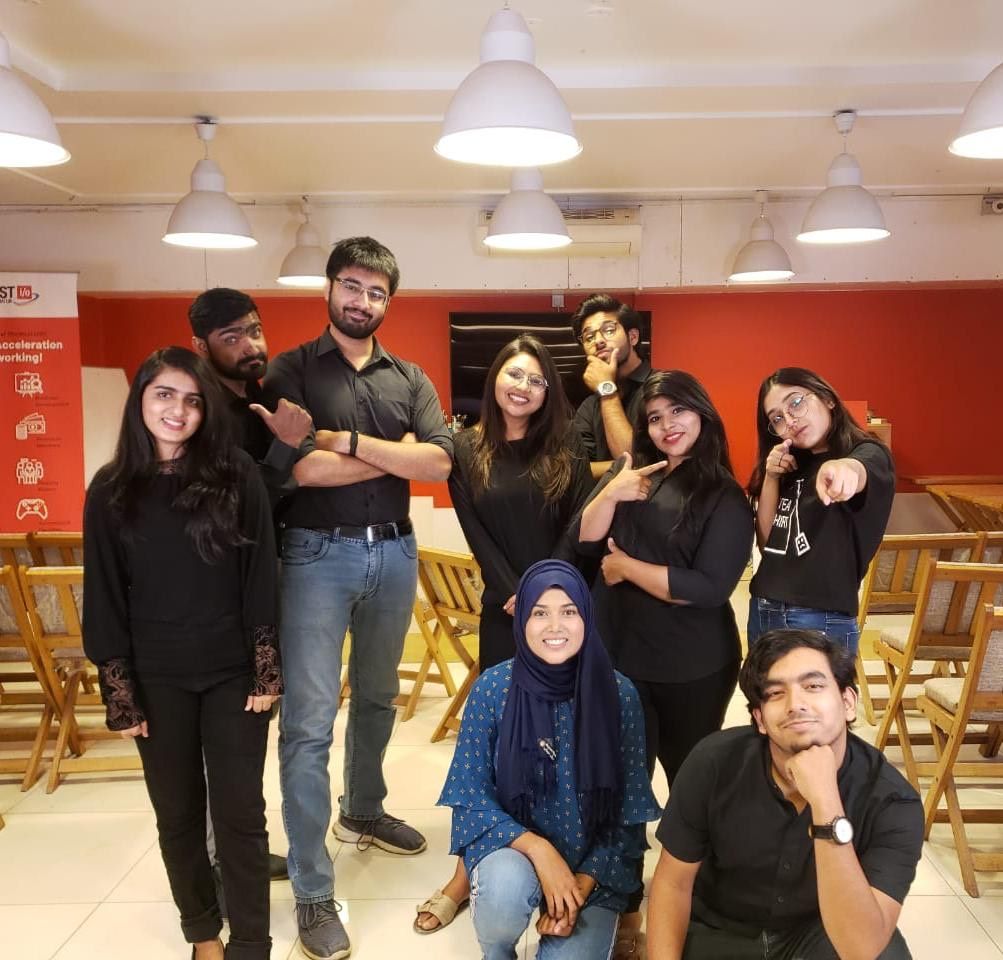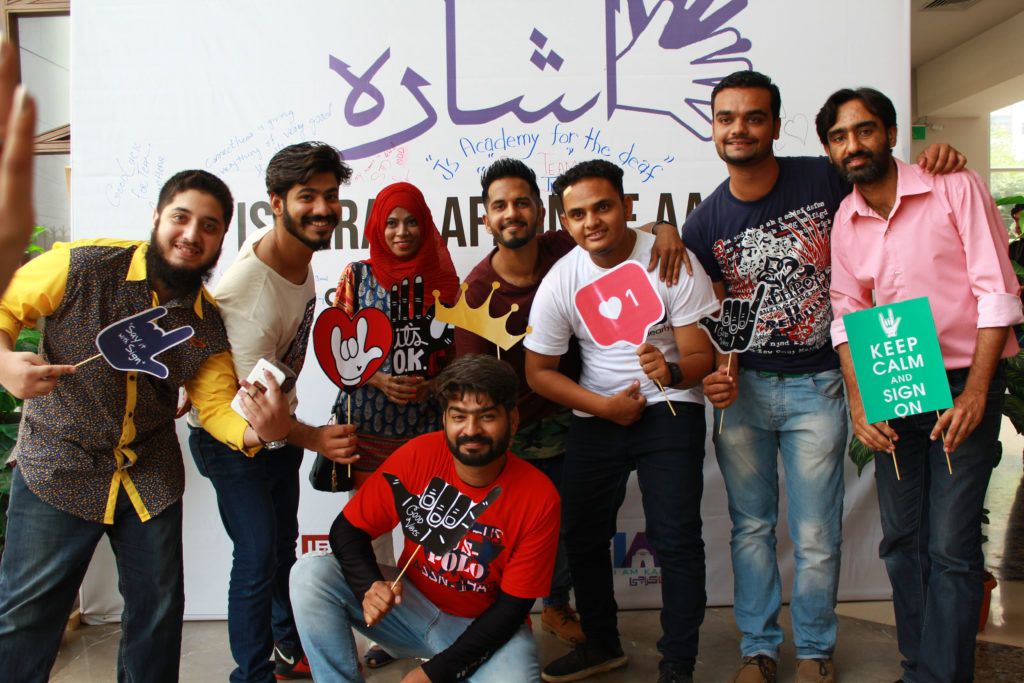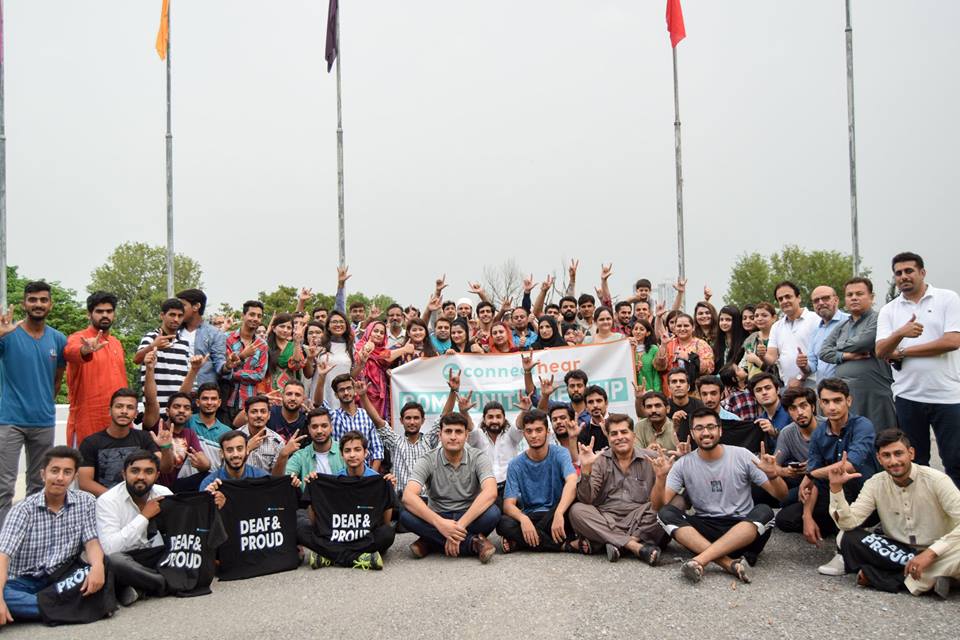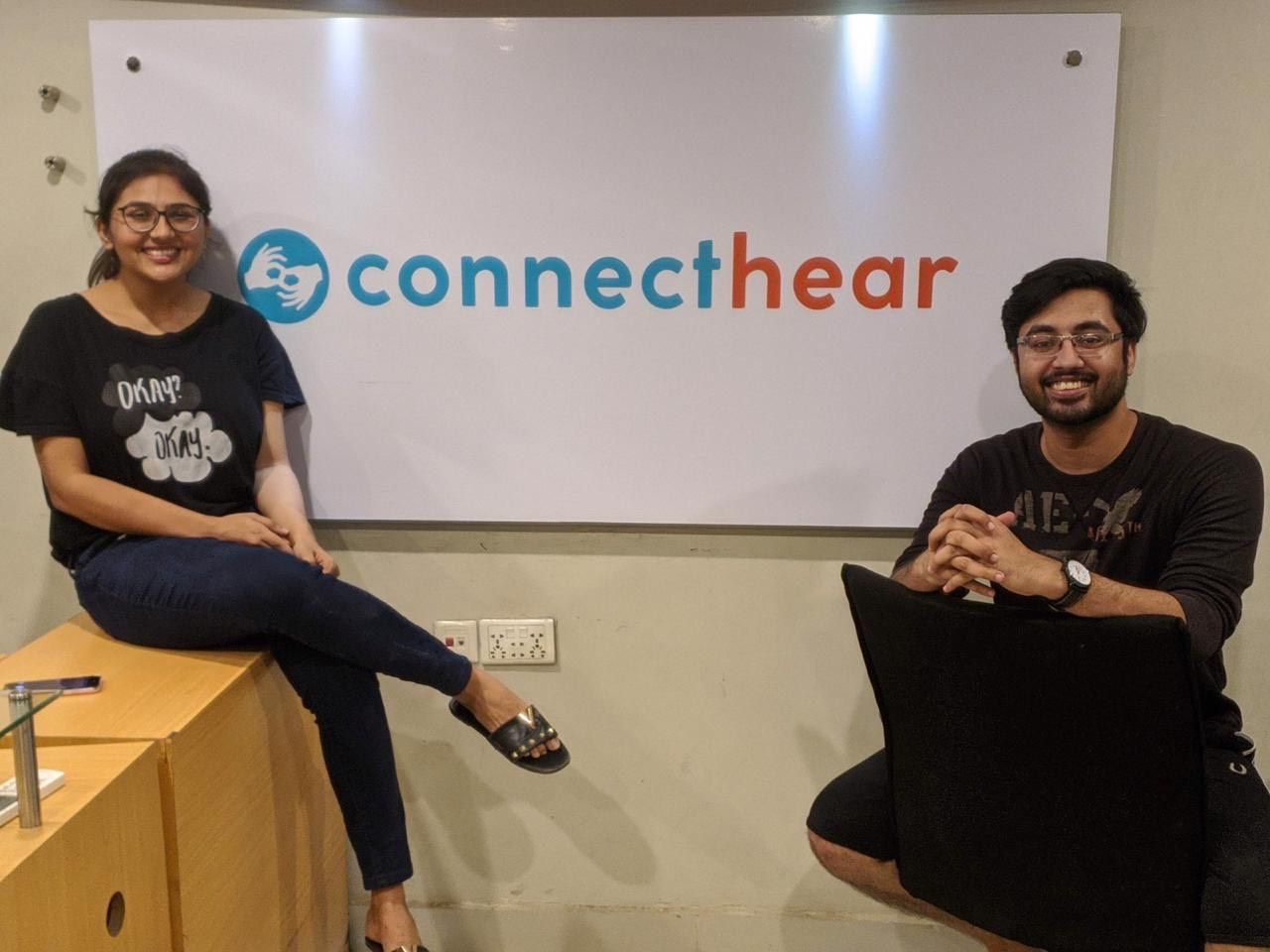Azima Dhanjee and Arhum Ishtiaq are the cofounders of ConnectHear. Being raised by Deaf parents, Azima has always been really bothered by the lack of accessibility in our society. Meanwhile, Arhum has always been very passionate about using technology for social goods. The two high school friends along with a team of dedicated individuals work every day to ensure inclusion and accessibility for the Deaf at all platforms. Hence, we talked to the founders to delve deeper into what inspired them to start the venture, and what drives them towards growing it. Before we get into what the founders have to say, let’s take a look at what ConnectHear is all about.
Read: The concept of Social Entrepreneurship
About ConnectHear
ConnectHear’s website describes themselves as “a social start-up led by aspiring youth working for sign language accessibility and deaf-inclusion in Pakistan”. However, It is important to note that the company is not an NGO, a common misunderstanding among the general populace.

Founded in 2017, ConnectHear was incubated in Nest I/O. Since its inception, the startup has been featured in the likes of Forbes after winning the Diana Award in 2019 for their exceptional work. They provide various services to help empower the deaf. These services include interpretation, translation, awareness campaigns, and sign language lessons. Hence, their mission is to give the Deaf individuals of Pakistan the tools they need to make communication accessible. Since the startup is so young, the amount of work and what the Azima and Arhum have been able to achieve is remarkable.
Initiatives and Achievements
ConnectHear has introduced many initiatives and achieved a great deal in its short lifespan. Here are their most notable achievements and initiatives:
Pakistan’s First Deaf Inclusive Concert
On 26th April 2018, ConnectHear conducted Pakistan’s first interpreted concert wherein individuals from the deaf community could finally enjoy music like everyone else. Over 300 attendees from the deaf community were present at the concert at Habib University. Moreover, these attendees were accompanied by the graduating class of 2018 to witness Strings in action. ConnectHear’s dedicated interpreters shared the stage with the performers and interpreted the songs.
Diana Award 2019
IN 2019, ConnectHear became the first-ever Pakistani Startup to win the Diana Award. Moreover, they did so within the first 3 years of their inception! The Startup got the award for its numerous efforts of empowering the deaf community in Pakistan. Hence, they won the prestigious award given to social organizations making a difference around the world.
ConnectTv
ConnectTV is an infotainment platform with sign language interpreted content. Hence, it gives access to the deaf community to view infotainment content they otherwise would miss out on.
Ishaara – Pakistan’s First Deaf Inclusive Theatre
ConnectHear initiated Ishaara to give hearing impaired and deaf people a chance to perform in theatre. Hence, in collaboration with I Am Karachi, they hosted a theatre competition in IBA in 2018 for the deaf and hearing impaired.

Deaf inclusive Modern United Nations with ROTMUN
n collaboration with ROTMUN – Rotaract Model United Nations, ConnectHear brought Pakistan’s very first Deaf Committee simulation to a MUN! Hence, they provided deaf students and recent graduates from different institutions of Pakistan with a powerful debating platform to take part in for teamwork, networking, and exchanging of refined topics about their struggles living in a hearing world.
The Interview
We are able to get in touch with the founders and gain an insight into the origins of the startup, and their life as founders of ConnectHear. Both Azima and Arhum are extremely talented people who have had a significant impact on the social entrepreneurship landscape in Pakistan. We interviewed both the founders, the Q&A of which you can find below.
Q. So Azima, what inspired you to start ConnectHear?
Azima: I was born to deaf parents and growing up around them made me realize how there was no accessibility for the deaf community. The fact that people belonging to this community couldn’t even go about doing basic daily activities like normal people bothered me. Deaf people like my parents could not attend events or even have a basic phone call by themselves. There weren’t interpreters available. In fact, in all of my parent-teacher meetings, I was my parent’s interpreter. I remember my teachers doubting me and thinking that I was interpreting incorrectly as they could not figure out themselves.
The point is I grew up seeing the deaf community struggle and the inspiration to create ConnectHear was born out of this. I decided since no was around to help the deaf community, I would take the initiative. We started off as a small project but the response was so great that we decided to build on it and form a startup focused on sustainability and impact creation.
Q. What struggles did you face?
Azima: Since we were a social startup in a space that was neglected for so long, people thought we were operating as an NGO and failed to see how serious we were about creating a safe space and accessibility for the deaf community. We had to struggle a lot. We did not have enough interpreters, and it was hard to find good ones, to begin with. Hence, I and a few other core people would go ourselves most of the time and interpret at events and workshops.
However, the most difficult part was providing a service, building a customer base, develop a culture, and creating awareness at the same time. This was a lot to do for us young founders with no finances. The team would expand, shrink, and back and forth. We had to make sure we kept our vision and aim aligned which was a challenge.
Q. How did you balance ConnectHear with your university life?
Azima: At the start, the workflow wasn’t that much but then we received a small grant in December 2017. It was then I realized the people apart from me were also interested in the idea and had faith in it. Hence, in Spring 2018 I took a semester break and committed fully to ConnectHear. When I resumed university, I would divide the time between the office and the university. None of this came without compromise and sacrifice though. I had to give up on a huge part of my social life. However, I was so dedicated to working on the cause and I could see the impact that ConnectHear was creating, that everything was worth it.

Q. So Arhum, can you tell what the long term goals are for ConnectHear?
Arhum: I personally see ConnectHear becoming huge by firstly being the one stop shop for everything related to the deaf community. Secondly, we aim to have a global impact and be the first sign language translation application that is actually scalable and usable. Lastly, we hope that through ConnectHear the deaf community is able to get information and entertainment. Our target is to expand not only in the nation but further as well.
Q. How difficult do you think it is to run a social enterprise? Especially in Pakistan.
Arhum: One of the biggest issues with social enterprise themselves is that you not only have to focus on making a social impact, but you also need to be financially stable. Otherwise, you will just be running an NGO and be dependent on funding from other sources.
In Pakistan, the concept of social entrepreneurship is relatively new. The public sees this as a project or an NGO. So explaining the idea of creating a social impact and aiming for a profit at the same time is pretty hard in Pakistan.
Q. So Arhum, one last question. What advice would you give to people wanting to create a social enterprise of their own?
Arhum: One of the most valuable advice I can give, is to have a perfect team. A team that understands you, the idea, and the vision. Also, a team that does not shy away from giving constructive criticism. Having people with the right mindset that align with your goals is very important especially in a social enterprise. The commitment to the cause is very important.
It was a pleasure talking to Azima and Arhum. Team PACE Business wishes them the best of luck. We look forward to seeing ConnectHear make a global impact.

